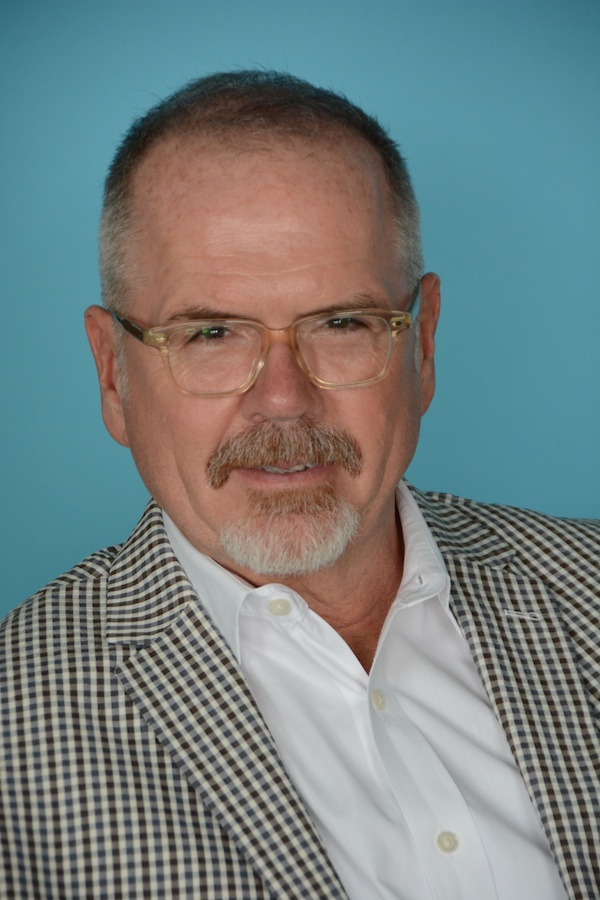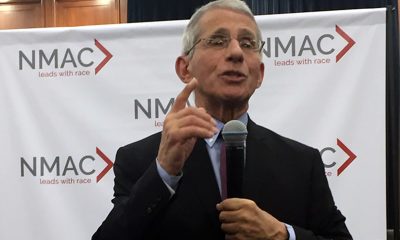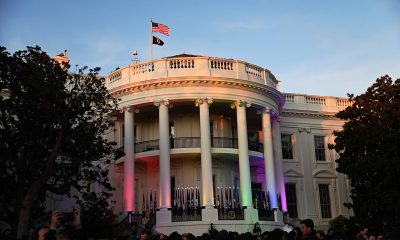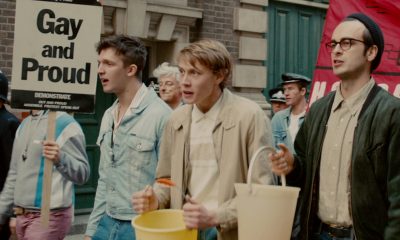Arts & Entertainment
From Larry Kramer to the ruby slippers
AFI DOCS festival continues through weekend
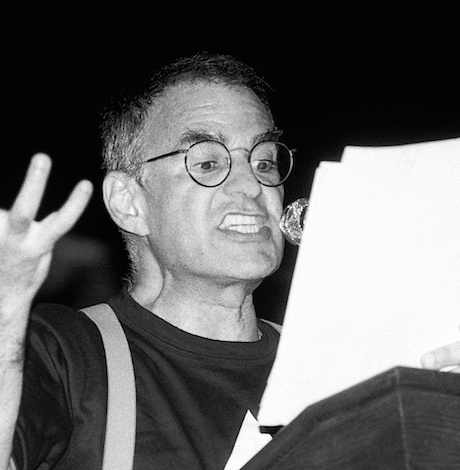
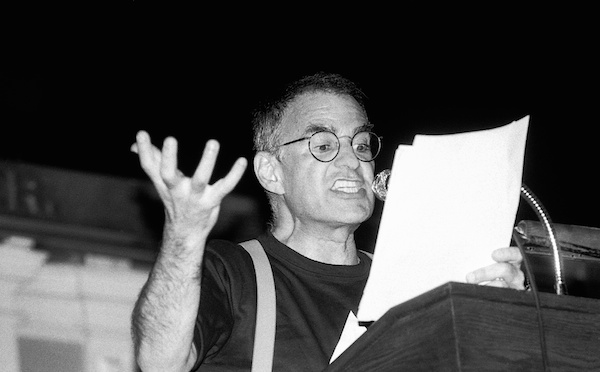
Larry Kramer speaking at a Boston Gay Town Meeting 6.9.87 at historic Faneuil Hall in Boston MA sponsored by the Boston Lesbian and Gay Political Alliance.
Openly gay film curator Michael Lumpkin is now also openly bi-coastal.
Since he was named executive director of AFI DOCS last December, Lumpkin has been splitting his time between the two coasts. After spending more than three decades in California, he’s enjoying life in the nation’s capital.
Every year, AFI DOCS brings the nest new documentaries from around the globe to Washington with dozens of screenings at AFI Silver in Silver Spring and other theaters throughout the District. Now in its 13th year, the festival runs through Sunday. The full schedule is at afidocs.org.
Lumpkin is thrilled with the slate of films that will be shown this year, but says that the selection process is very difficult.
“It takes several months,” he says. “We had close to 2,000 entries. Most of those are feature length films, but we also show short documentaries. We have a number of experienced screeners who send their evaluations to us. A screening committee goes through all the films that are rising to the top and then we make the final selections.”
Turning away talented filmmakers and exciting films is the worst part of the process.
“There are way more film that we would like to show than we can. There are so many great documentaries. That’s the hard part of the job — deciding what you’re not going to show. Deciding what you want to show is easy. Having to say, ‘Sorry we can’t include you’ to way too many great documentaries is the hard part.”
Looking over this year’s films, Lumpkin says he is excited by the latest film by Malcolm Ingram, director of “Bear Nation.”
“One that I’m really, really happy about is ‘Out To Win,’ a documentary about LGBT people in sports,“ he says. “Malcolm is one of my favorite filmmakers. I became aware of him with his film ‘Small Town Gay Bar.’ He’s a great filmmaker and a great guy.”
Lumpkin is also intrigued by “Larry Kramer In Love And Anger,” the new HBO documentary by Jean Carlomusto about the fiery author and AIDS activist.
“It’s interesting to look back at Larry and see his role in our community. He’s a volatile, very outspoken guy. It was so great to look back at these moments in LGBT history and activism. It’s a great bio-documentary that gives you the full picture of Larry.”
He adds, “There are a lot of great bio-documentaries in his year’s festival. I kinda go towards those a lot. I’m really into learning about people and their lives. We have documentaries about Steve Jobs and Nina Simone. We have a movie about the great arts patron Peggy Guggenheim. Closing night we’re featuring a movie about Mavis Staples, the great gospel singer.”
Two other films of special interest to the LGBT community are “Code: Debugging the Gender Gap” by Robin Hauser Reynolds, which looks at the absence of women in the coding industry, and “From This Day Forward,” a stunning film by Sharon Shattuck that explores her father’s gender identity struggles and how her parents have remained married through it all.
There’s also “Who Stole the Ruby Slippers?” a delightful short documentary that investigates the disappearance of one of the iconic pairs of ruby slippers from “The Wizard of Oz” from the Judy Garland Museum in her hometown of Grand Rapids, Minn. There are four programs of short documentaries throughout the festival.
Some other notable films that will be screened as part of AFI DOCS include “The Armor of Light,” a film by Abigail Disney about an evangelical leader who is forced to reconsider his views about gun control; “Very Semi-Serious” about Bob Mankoff, the quirky cartoon editor of “The New Yorker”; and “Welcome to Leith” which looks at how the resident of a small North Dakota reacted to the arrival of notorious white supremacist.
The love of documentaries has run through Lumpkin’s notable career, from when he ran the Frameline LGBT film festival for 25 years starting in the early ‘80s to today.
“Year after year, film after film, I would see people connecting with documentaries in a very different way than with fiction film. There’s something about it being truth and reality. I saw the special connection audiences have with documentaries.”
He also adds that AFI DOCS will include several opportunities for audience members to interact with the filmmakers and their subjects. Throughout the festival, there will be several Q&A sessions and panel discussions.
“For a fiction film, it’s great to have the director there, or a cast member who has just given a great performance. But to see a great documentary and then for the artist and the real person to be there, to be on stage, it’s a whole different reaction from audiences. I think it just goes much deeper.”
Lumpkin took several years off from his job at Frameline to produce the groundbreaking documentary “The Celluloid Closet” with Rob Epstein and Jeffrey Friedman. Based on the pioneering film criticism of Vito Russo, the fascinating documentary examines Hollywood representations of gay men and lesbians. Working on the film gave Lumpkin a renewed appreciation for the genre. For several years he ran the Documentary Association, an organization in Los Angeles that supports documentary filmmakers around the world. When the opportunity to get back into the festival business with AFI DOCS came along, he “jumped at the opportunity.”
Theater
José Zayas brings ‘The House of Bernarda Alba’ to GALA Hispanic Theatre
Gay Spanish playwright Federico García Lorca wrote masterpiece before 1936 execution

‘The House of Bernarda Alba’
Through March 1
GALA Hispanic Theatre
3333 14th St., N.W.
$27-$52
Galatheatre.org
In Federico García Lorca’s “The House of Bernarda Alba,” now at GALA Hispanic Theatre in Columbia Heights, an impossibly oppressive domestic situation serves, in short, as an allegory for the repressive, patriarchal, and fascist atmosphere of 1930s Spain
The gay playwright completed his final and arguably best work in 1936, just months before he was executed by a right-wing firing squad. “Bernarda Alba” is set in the same year, sometime during a hot summer in rural Andalusia, the heart of “España profunda” (the deep Spain), where traditions are deeply rooted and mores seldom challenged.
At Bernarda’s house, the atmosphere, already stifling, is about to get worse.
On the day of her second husband’s funeral, Bernarda Alba (superbly played by Luz Nicolás), a sixtyish woman accustomed to calling the shots, gathers her five unmarried daughters (ages ranging from 20 to 39) and matter-of-factly explain what’s to happen next.
She says, “Through the eight years of mourning not a breeze shall enter this house. Consider the doors and windows as sealed with bricks. That’s how it was in my father’s house and my grandfather’s. Meanwhile, you can embroider your trousseaux.”
It’s not an altogether sunny plan. While Angustias (María del Mar Rodríguez), Bernarda’s daughter from her first marriage and heiress to a fortune, is betrothed to a much younger catch, Pepe el Romano, who never appears on stage, the remaining four stand little chance of finding suitable matches. Not only are they dowry-less, but no men, eligible or otherwise, are admitted into their mother’s house.
Lorca is a literary hero known for his mastery of both lyrical poetry and visceral drama; still, “Bernarda Alba’s” plotline might suit a telenovela. Despotic mother heads a house of adult daughters. Said daughters are churning with passions and jealousies. When sneaky Martirio (Giselle Gonzáles) steals the photo of Angustias’s fiancé all heck kicks off. Lots of infighting and high drama ensue. There’s even a batty grandmother (Alicia Kaplan) in the wings for bleak comic relief.
At GALA, the modern classic is lovingly staged by José Zayas. The New York-based out director has assembled a committed cast and creative team who’ve manifested an extraordinarily timely 90-minute production performed in Spanish with English subtitles easily ready seen on multiple screens.
In Lorca’s stage directions, he describes the set as an inner room in Bernarda’s house; it’s bright white with thick walls. At GALA, scenic designer Grisele Gonzáles continues the one-color theme with bright red walls and floor and closed doors. There are no props.
In the airless room, women sit on straight back chairs sewing. They think of men, still. Two are fixated on their oldest siter’s hunky betrothed. Only Magdelena (Anna Malavé), the one sister who truly mourns their dead father, has given up on marriage entirely.
The severity of the place is alleviated by men’s distant voices, Koki Lortkipanidze’s original music, movement (stir crazy sisters scratching walls), and even a precisely executed beatdown choreographed by Lorraine Ressegger-Slone.
In a short yet telling scene, Bernarda’s youngest daughter Adela (María Coral) proves she will serve as the rebellion to Bernarda’s dictatorship. Reluctant to mourn, Adela admires her reflection. She has traded her black togs for a seafoam green party dress. It’s a dreamily lit moment (compliments of lighting designer Hailey Laroe.)
But there’s no mistaking who’s in charge. Dressed in unflattering widow weeds, her face locked in a disapproving sneer, Bernarda rules with an iron fist; and despite ramrod posture, she uses a cane (though mostly as a weapon during one of her frequent rages.)
Bernarda’s countenance softens only when sharing a bit of gossip with Poncia, her longtime servant convincingly played by Evelyn Rosario Vega.
Nicolás has appeared in “Bernarda Alba” before, first as daughter Martirio in Madrid, and recently as the mother in an English language production at Carnegie Melon University in Pittsburgh. And now in D.C. where her Bernarda is dictatorial, prone to violence, and scarily pro-patriarchy.
Words and phrases echo throughout Lorca’s play, all likely to signal a tightening oppression: “mourning,” “my house,” “honor,” and finally “silence.”
As a queer artist sympathetic to left wing causes, Lorca knew of what he wrote. He understood the provinces, the dangers of tyranny, and the dimming of democracy. Early in Spain’s Civil War, Lorca was dragged to the the woods and murdered by Franco’s thugs. Presumably buried in a mass grave, his remains have never been found.
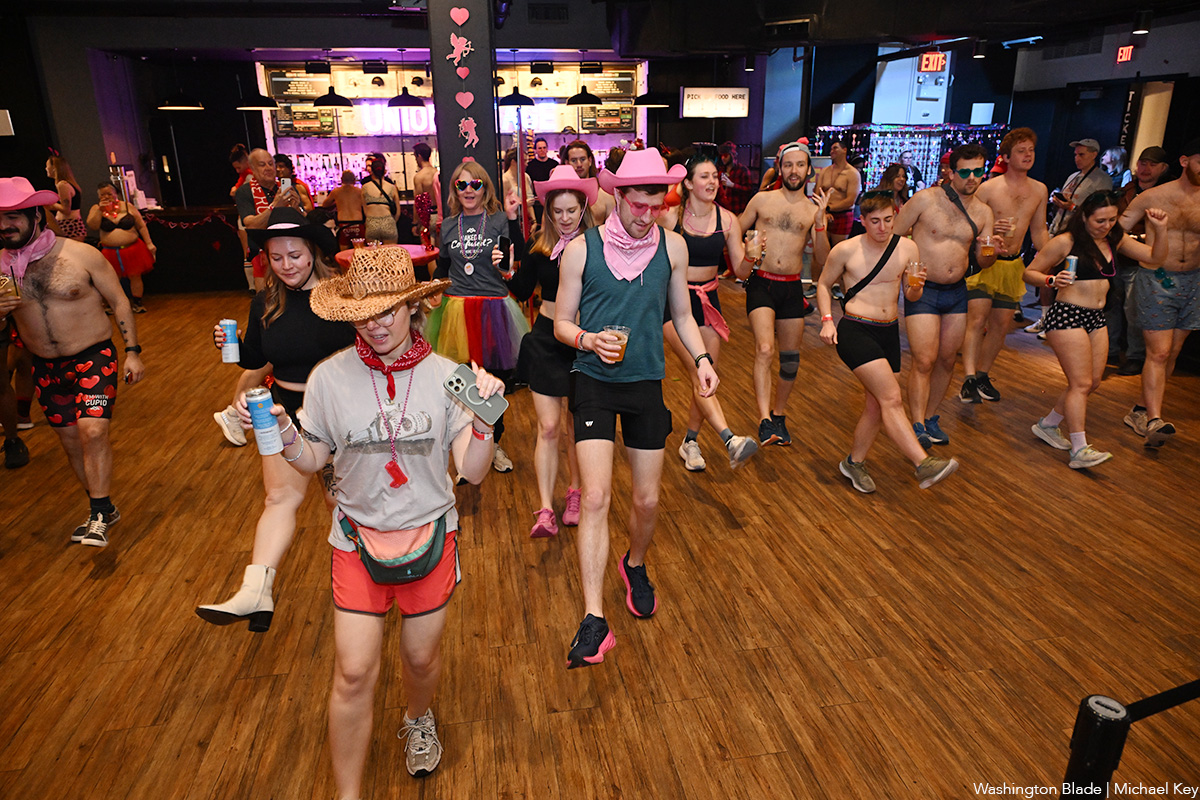
Cupid’s Undie Run, an annual fundraiser for neurofibromatosis (NF) research, was held at Union Stage and at The Wharf DC on Saturday, Feb. 21.
(Washington Blade photos by Michael Key)
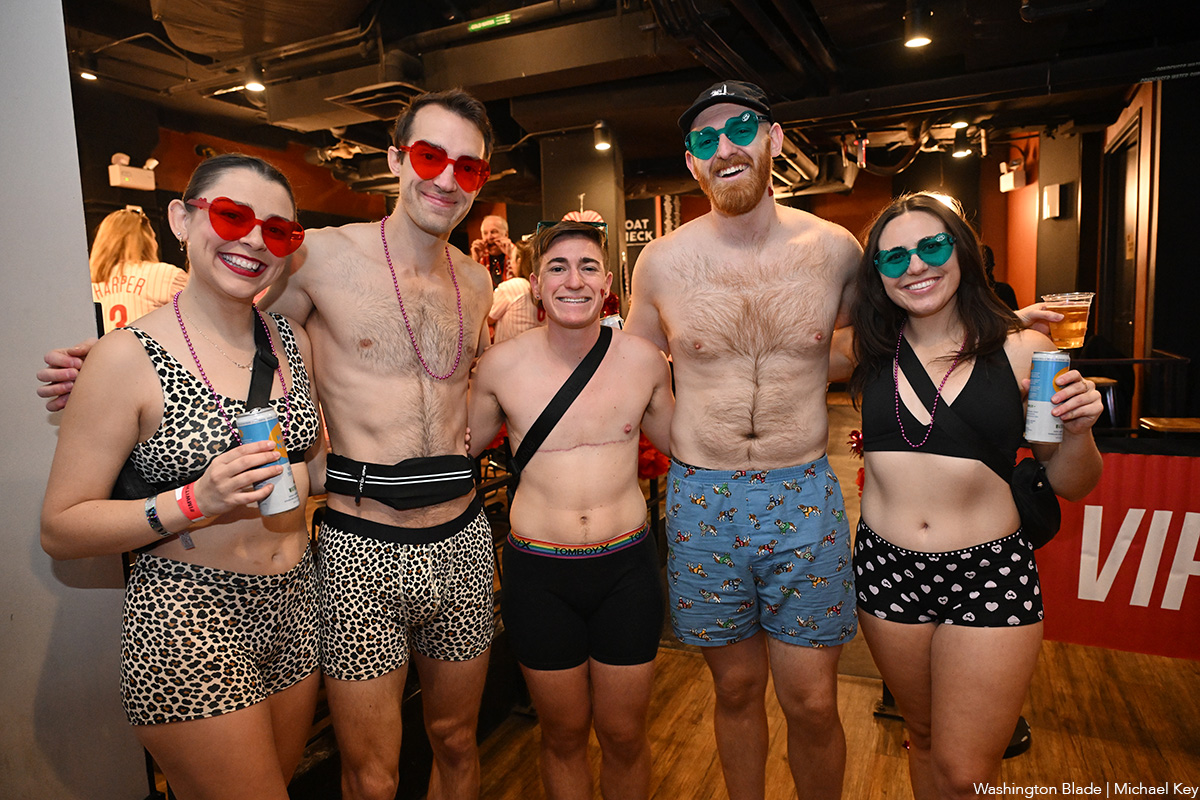
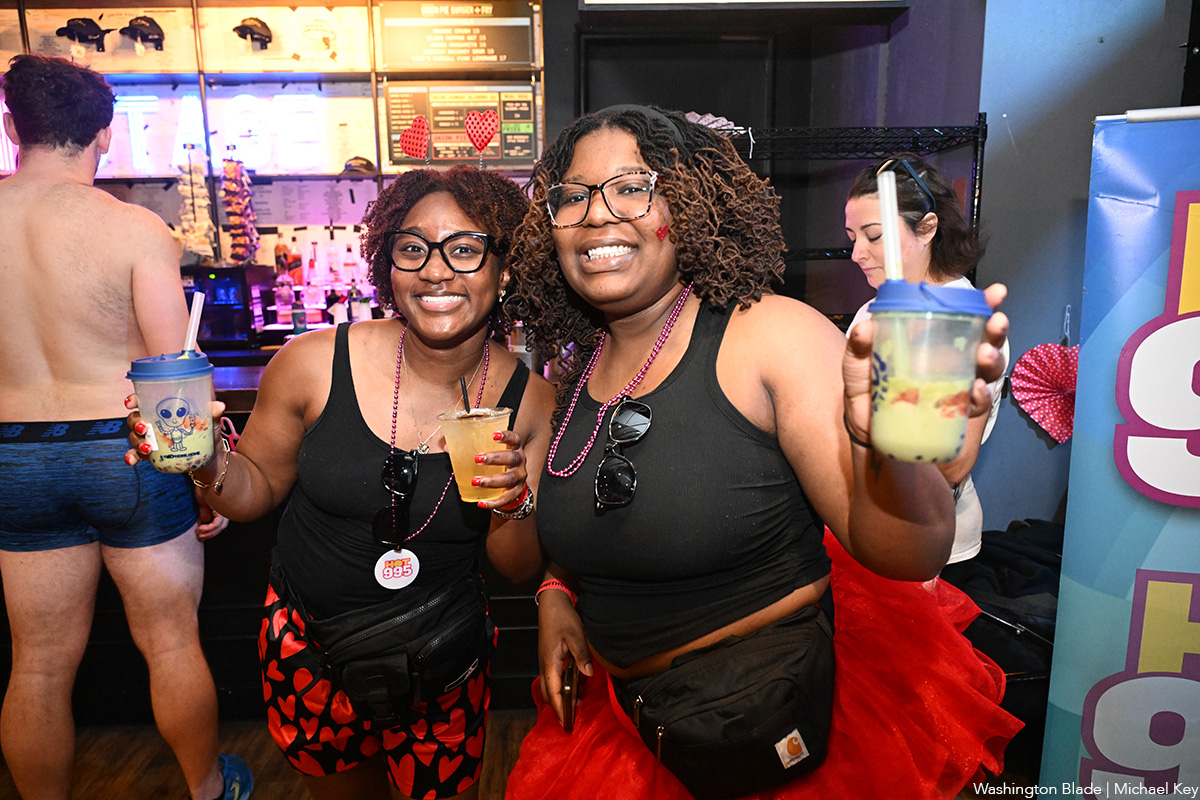
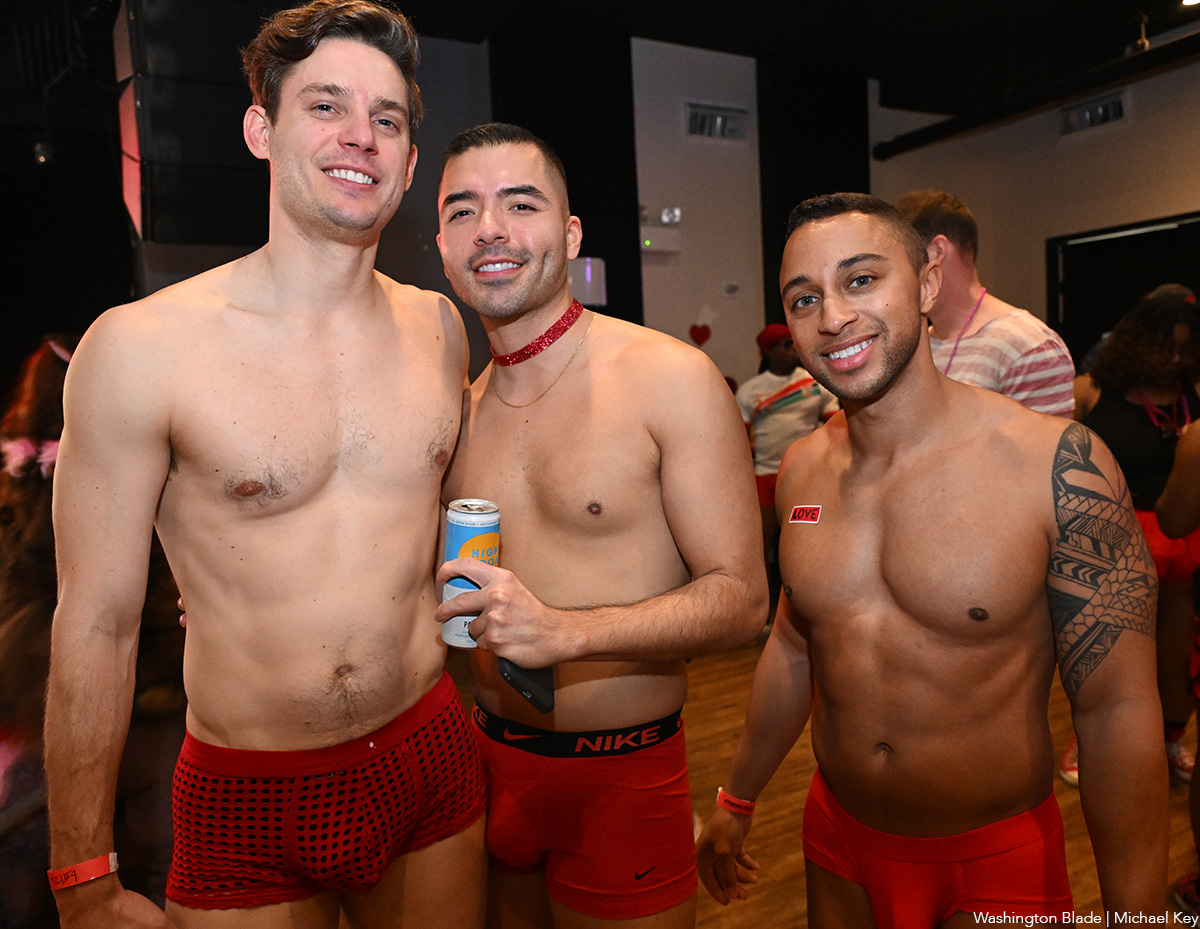
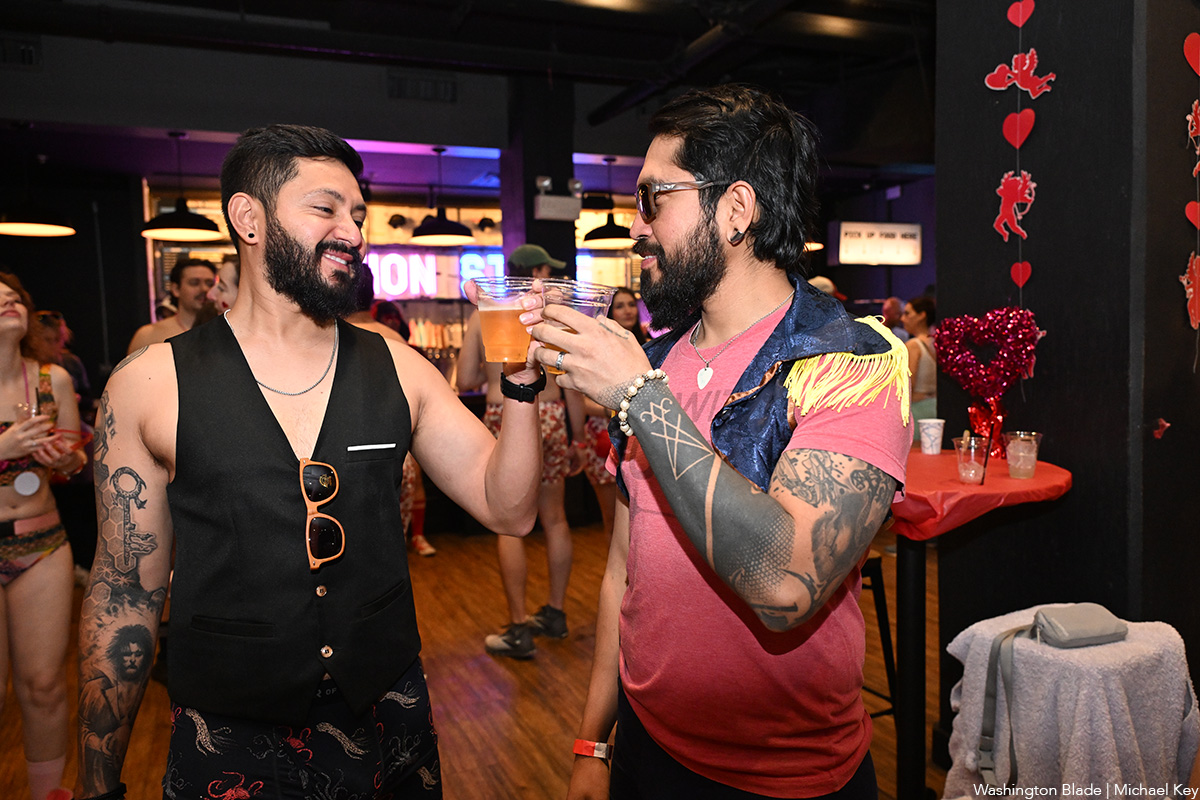
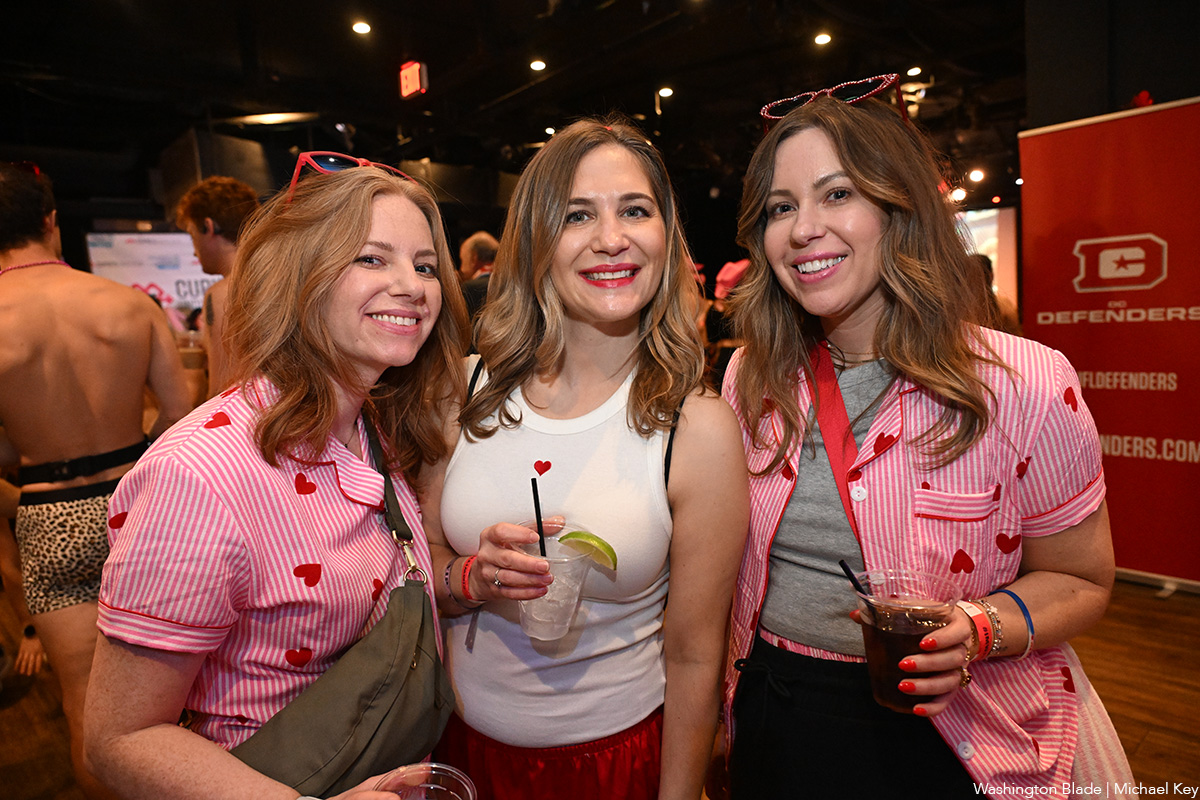
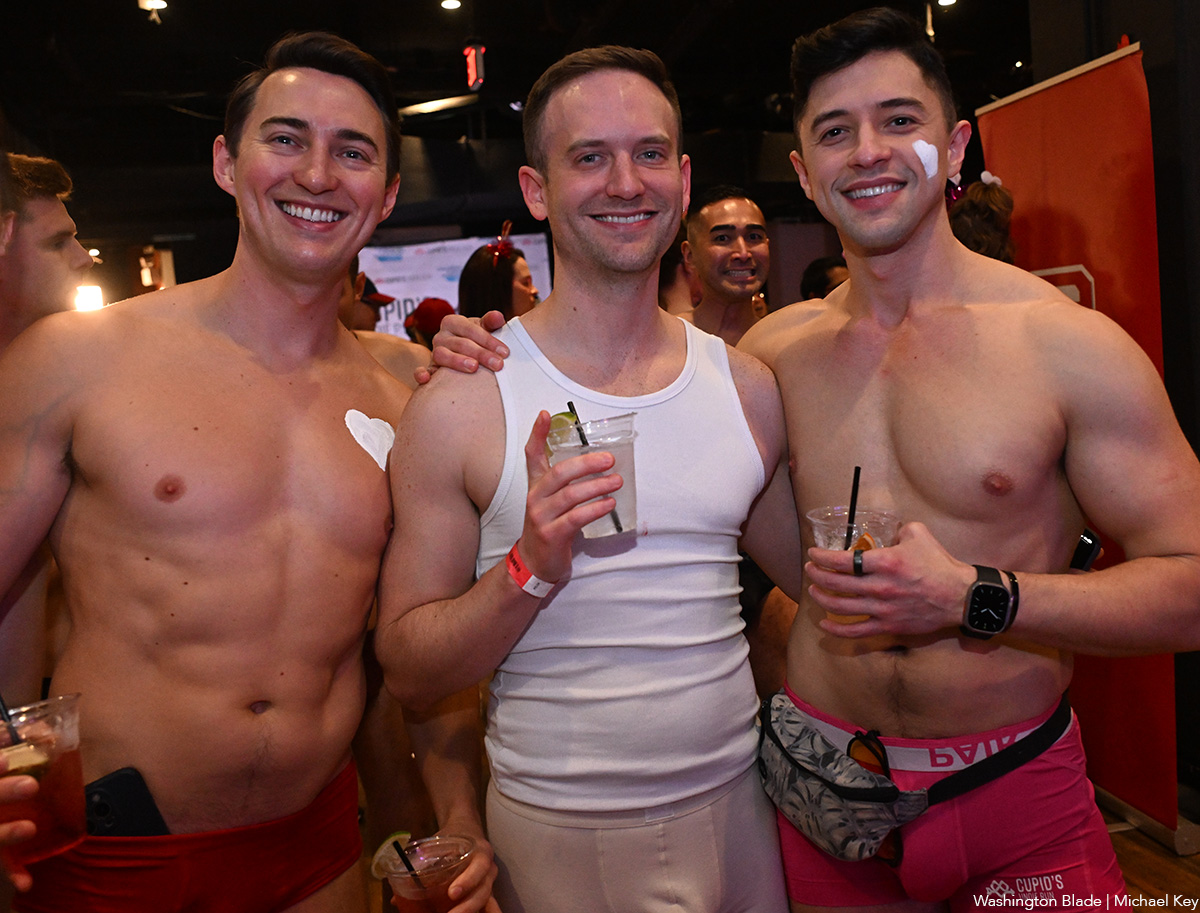
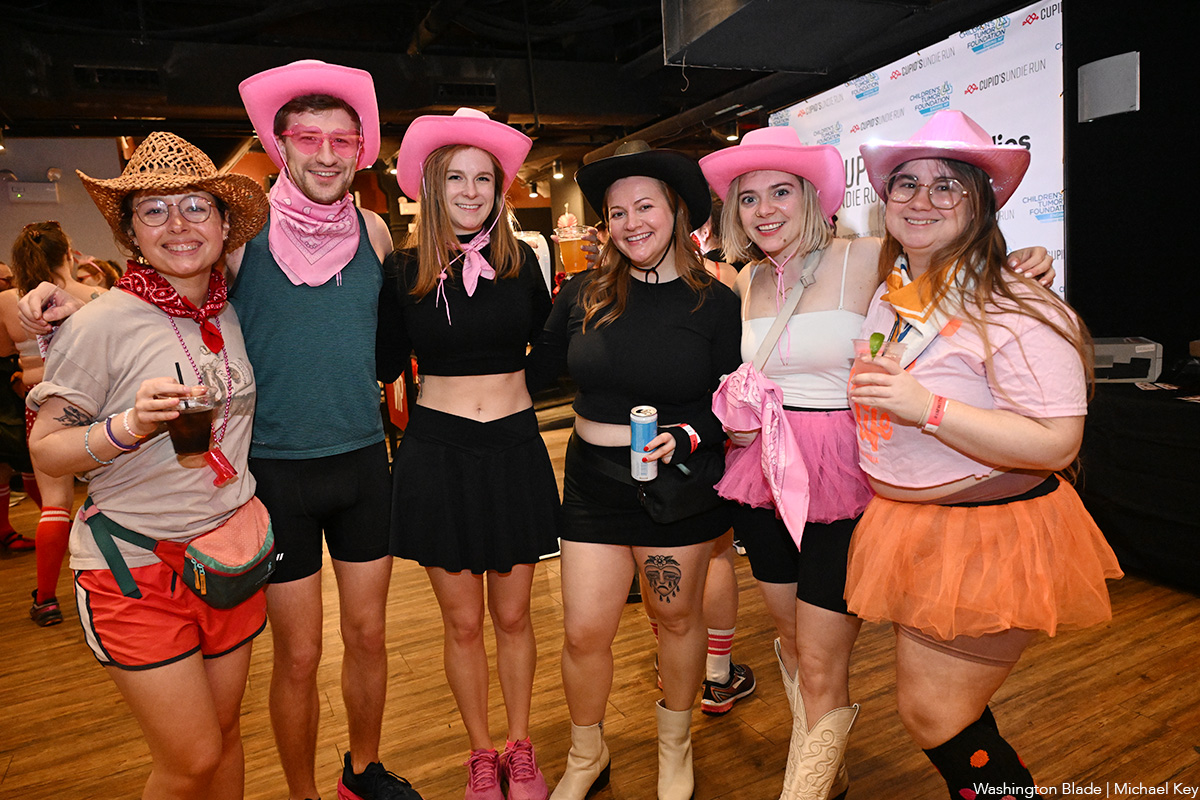
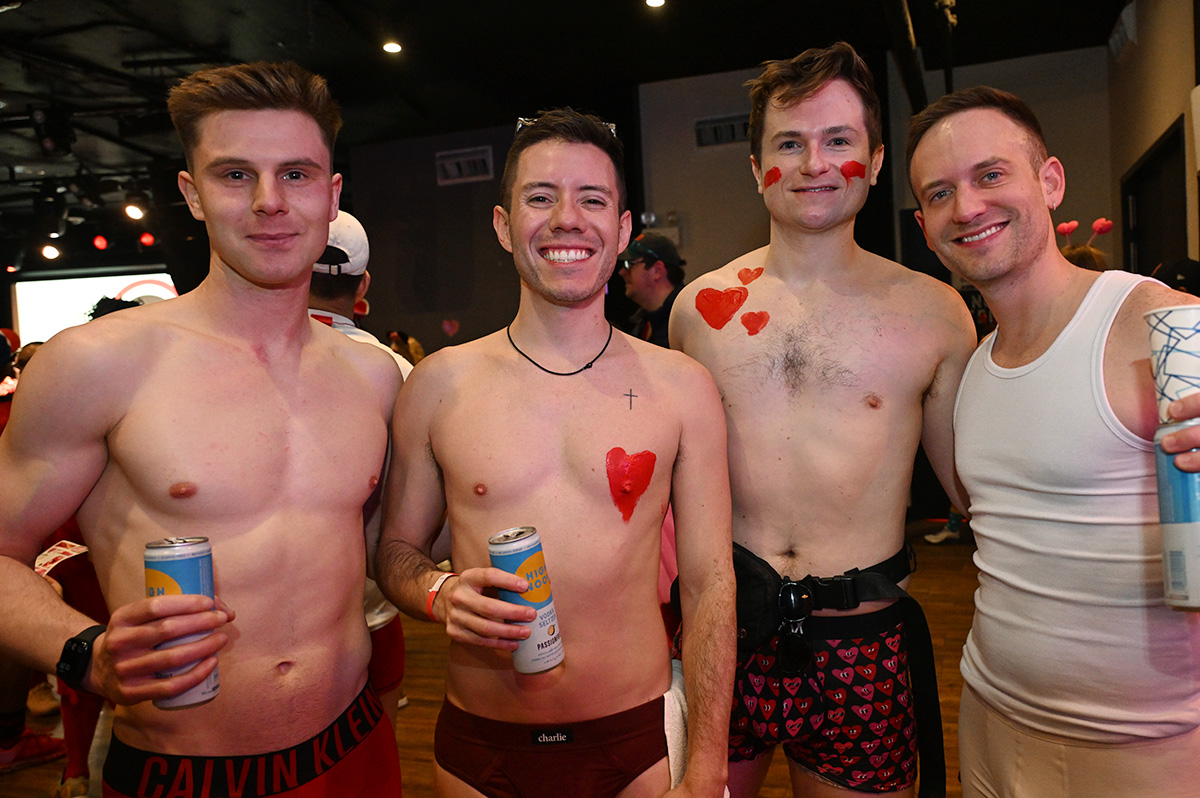
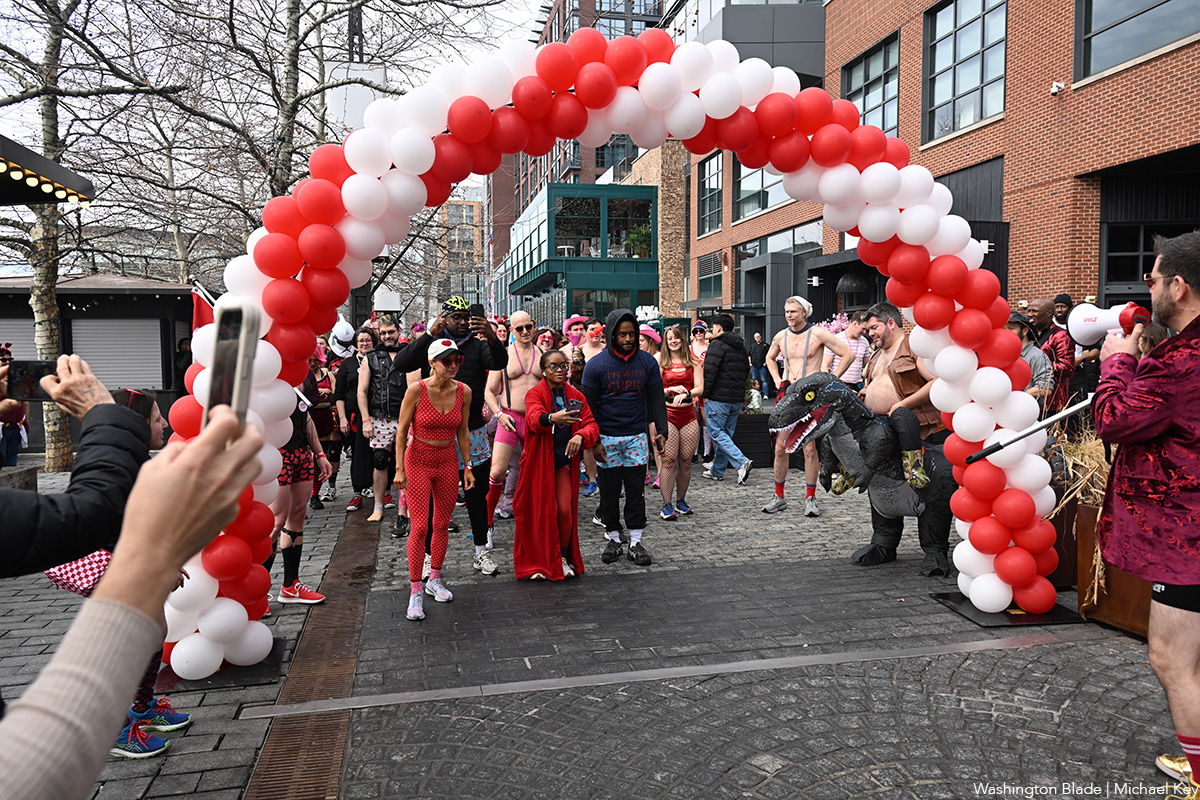
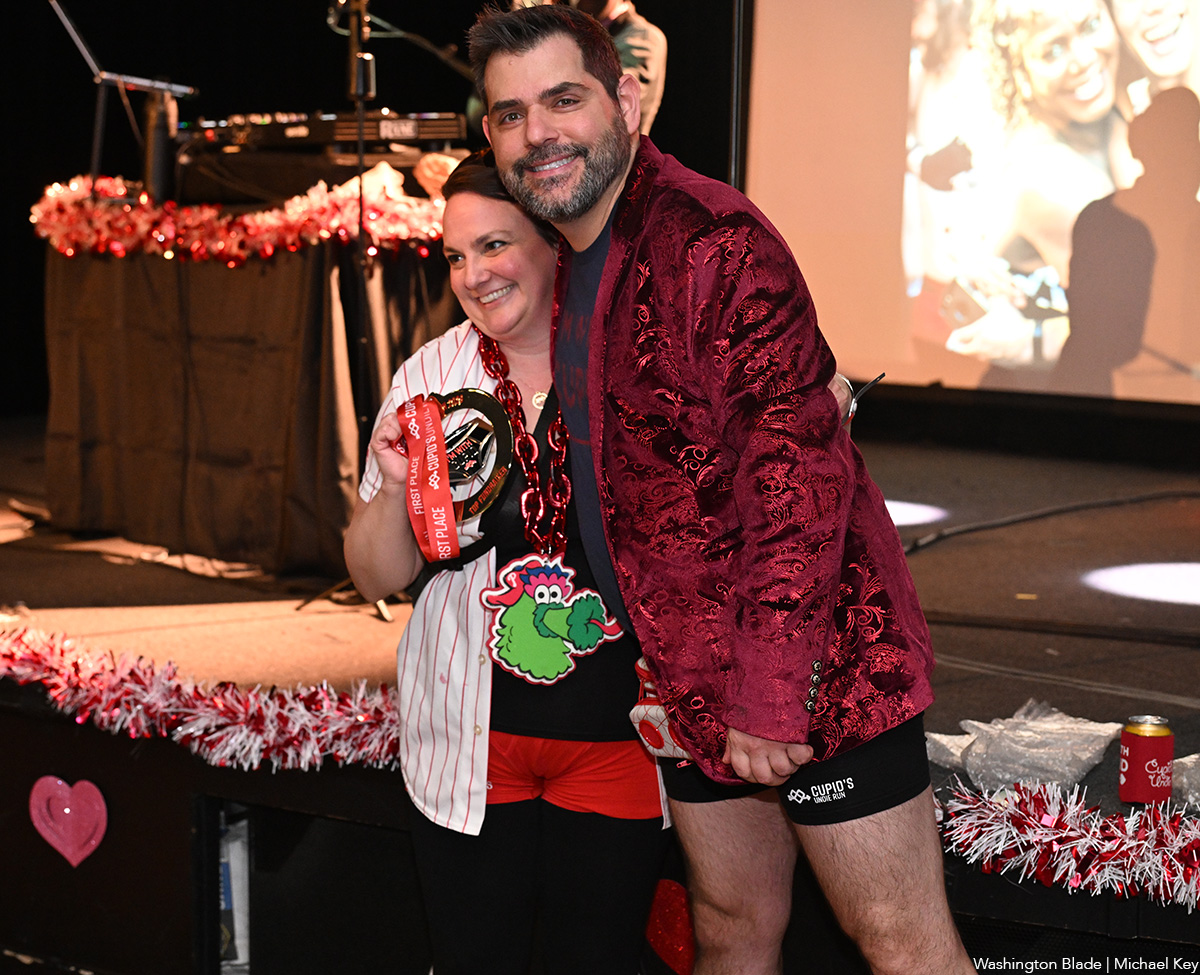
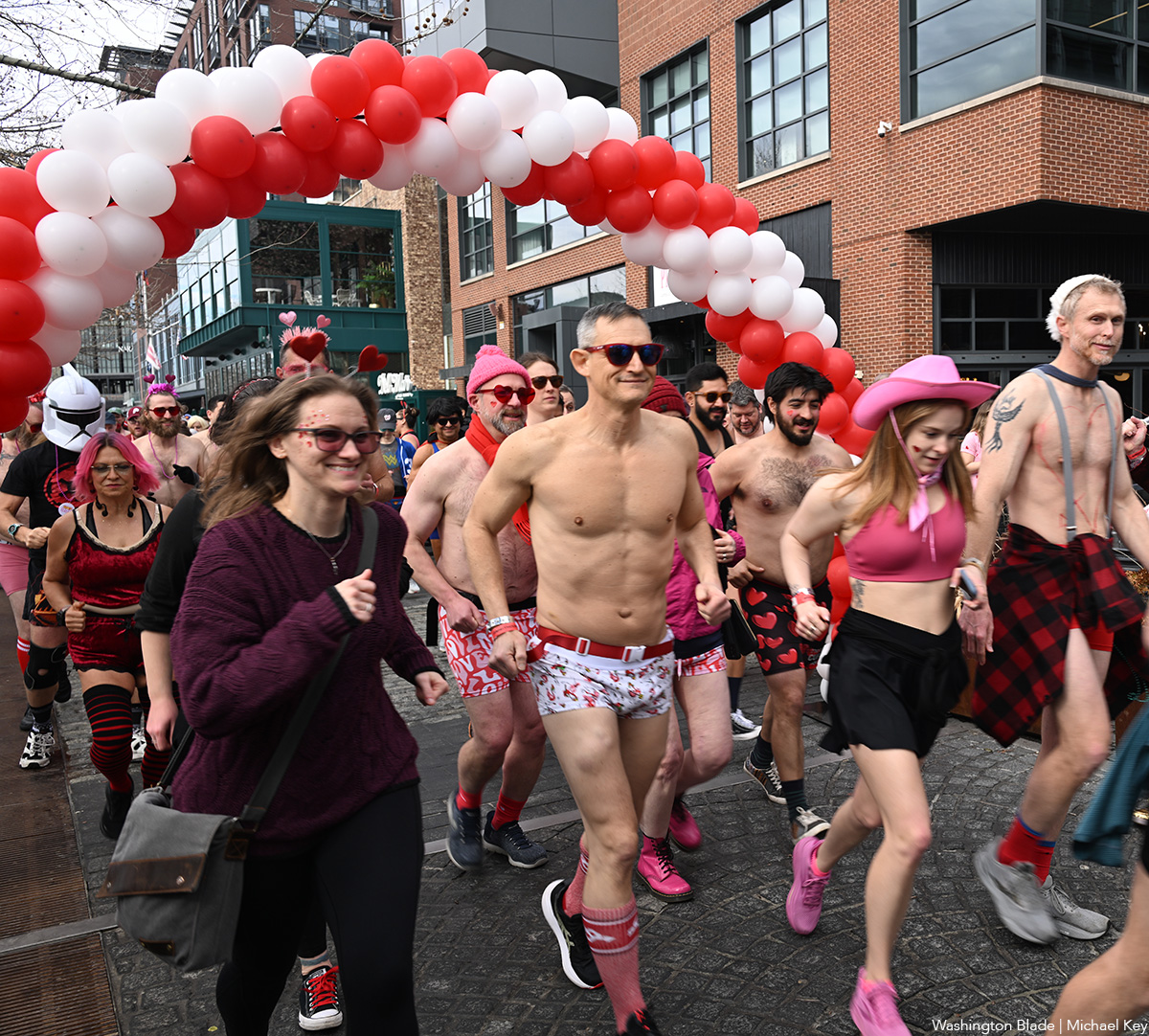
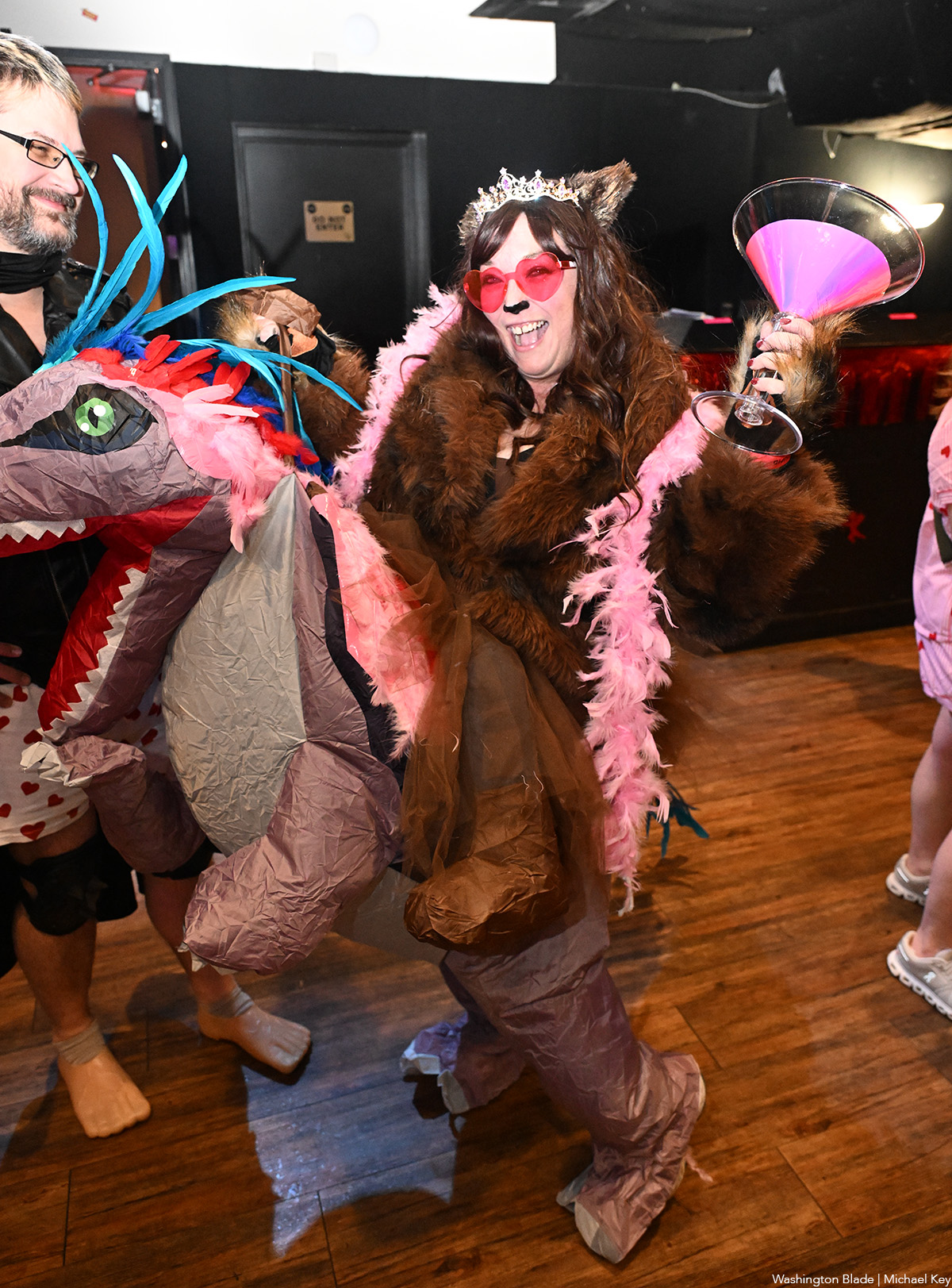
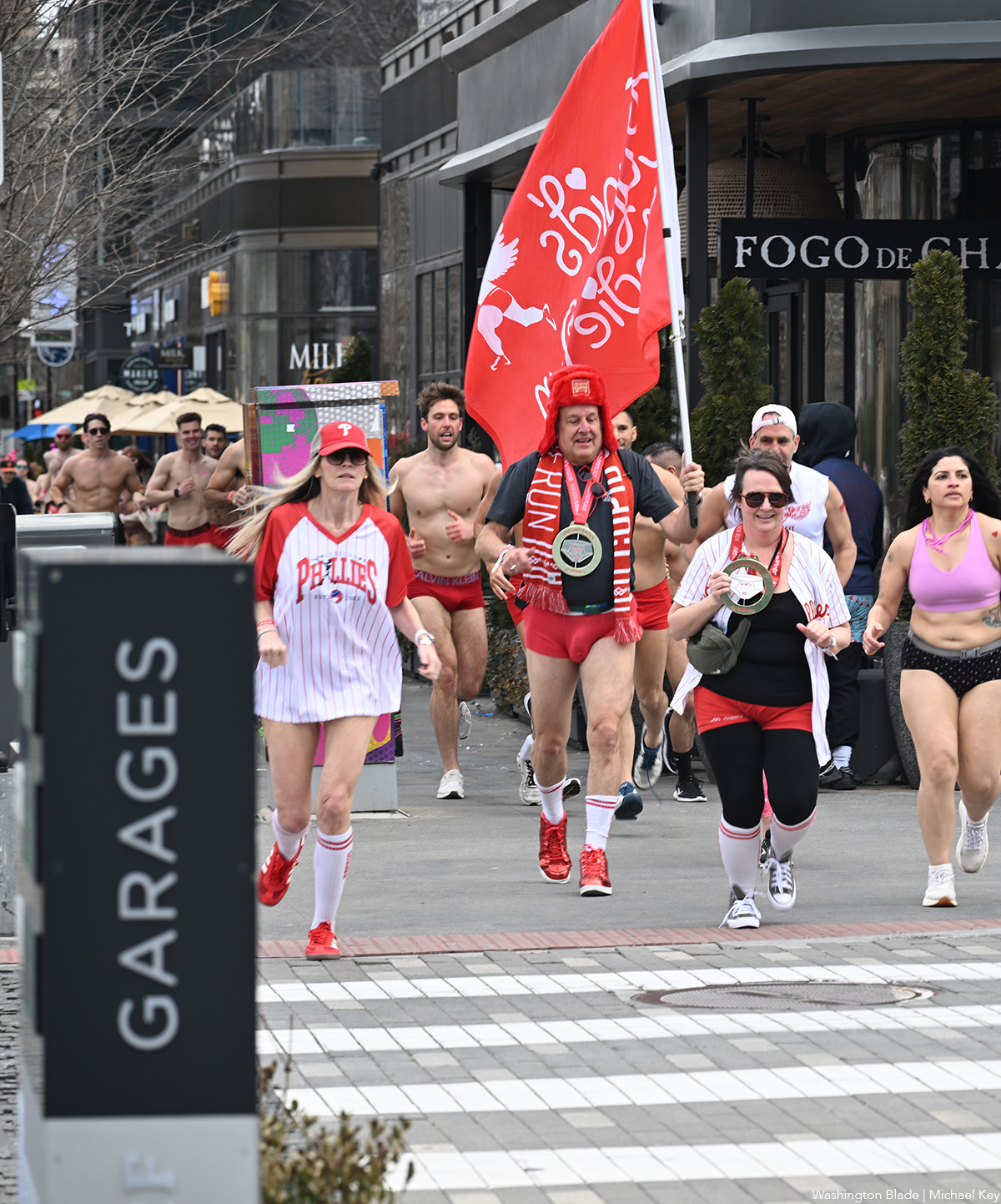

Sweat DC is officially expanding to Shaw, opening a new location at 1818 7th St., N.W., on Saturday, March 28 — and they’re kicking things off with a high-energy, community-first launch event.
To celebrate, Sweat DC is hosting Sweat Fest, a free community workout and social on Saturday, March 14, at 10 a.m. at the historic Howard Theatre. The event features a group fitness class, live DJ, local food and wellness partners, and a mission-driven partnership with the Open Goal Project, which works to expand access to youth soccer for players from marginalized communities.
For more details, visit Sweat DC’s website and reserve a spot on Eventbrite.
-

 Massachusetts5 days ago
Massachusetts5 days agoEXCLUSIVE: Markey says transgender rights fight is ‘next frontier’
-

 Opinions4 days ago
Opinions4 days agoGay Treasury Secretary’s silence on LGBTQ issues shows he is scum
-

 New York4 days ago
New York4 days agoLawsuit to restore Stonewall Pride flag filed
-

 U.S. Military/Pentagon4 days ago
U.S. Military/Pentagon4 days ago4th Circuit rules against discharged service members with HIV

